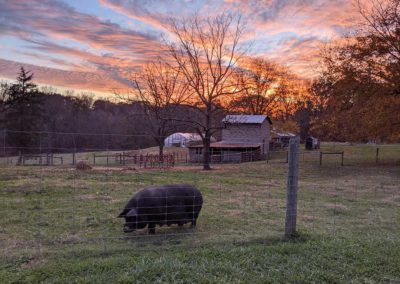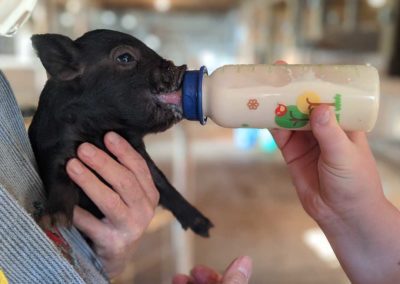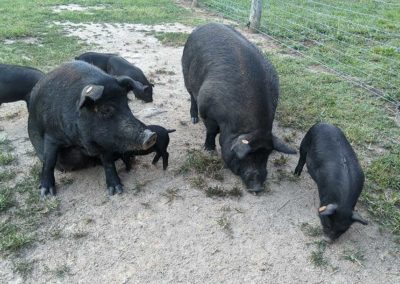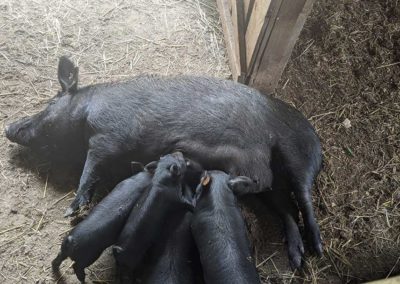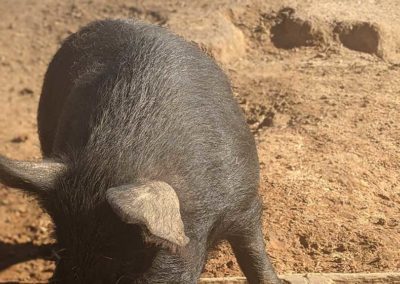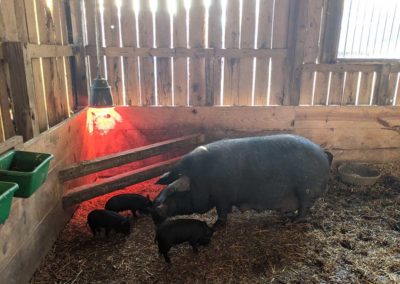About Guinea Hogs
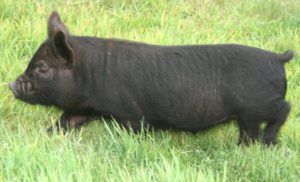
Guinea Hogs …. the perfect homestead pig!
We have one male for sale [as of June 2025].
See our BUY page for purchasing instructions.
We sell registered and unregistered guinea hogs year round and have most litters in the Spring and Fall.
Mentoring
For those who have little to no experience with the American Guinea Hog, benefit from our years of experience. We offer a comprehensive one-on-one mentoring program here at the Old Crowe Farm. Click here for more information.
Benefits to Homesteaders
We raise the American Guinea Hog since they are well suited to our climate here in southern Virginia and our pasture-based sustainable farm environment.
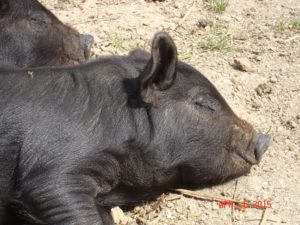
A breed with unmatched temperament and flavor.
Disposition
We wanted pigs with an extremely docile and happy personality for our small farm and many visitors. Our guinea hogs have an excellent disposition and do well with children and other farm animals. Our guinea hogs share pastures with our Dexter cattle, Tennessee Fainting goats, Mottled Java chickens, and Maremma Sheepdogs.
Meat
The unique combination of rare genetics, quality foraging, and nutritious supplemented diet make for exquisite tasting pork. Guinea hog meat is moist and offers a deep rich flavor. Although the guinea hog is slow growing, they are excellent foragers and gain weight easily. This means keeping them around for a year (or more) to reach a desired weight is not an issue for most homesteaders. We have butchered them from as young as 6 months to 5+ years old.
The guinea hog is not overly large (compared to other breeds) and range between 150 and 300 pounds. This means we don’t have so much meat after butchering that it won’t fit in our freezers. It also means we can easily dispatch and butcher our pigs on our own.
Lard!
Guinea hogs produce plenty of white gold…. LARD! Lard is of vital importance to any homesteader. We render our leaf fat to make the sweetest lard for our baked products. We render the other fat for use in our everyday cooking. We also sell fatback… a southern favorite!
For more breed information, visit The Livestock Conservancy.
Conservation Priority
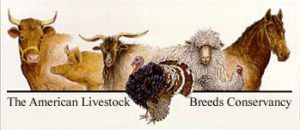
Conservation Priority = THREATENED

